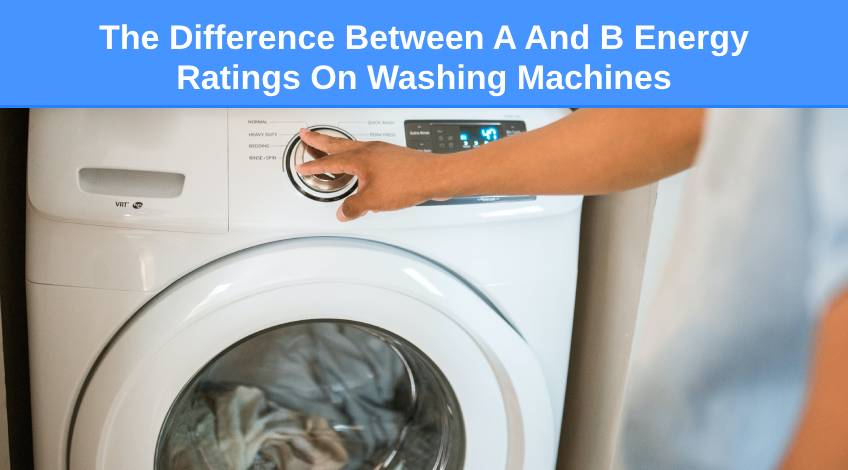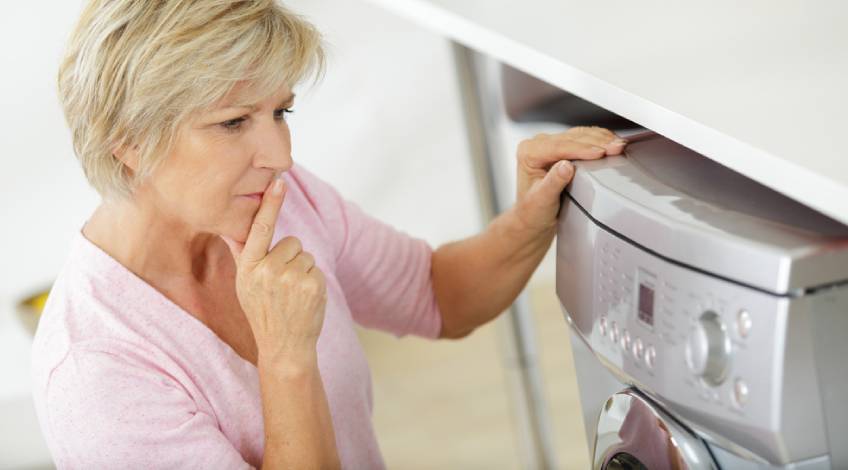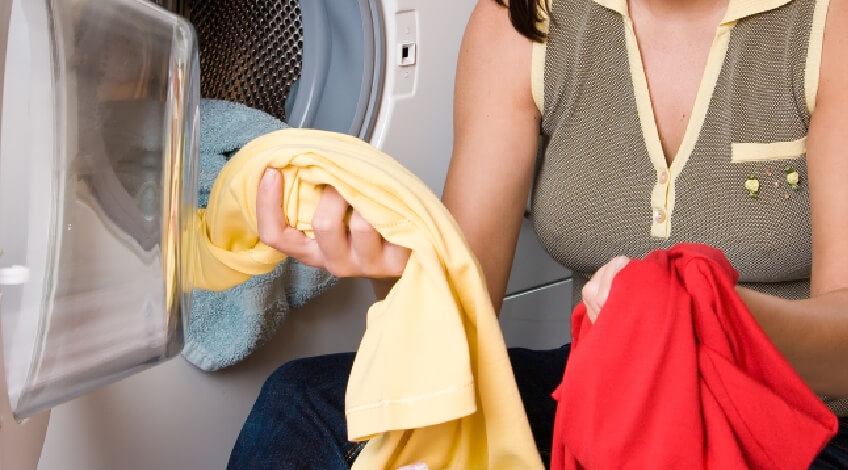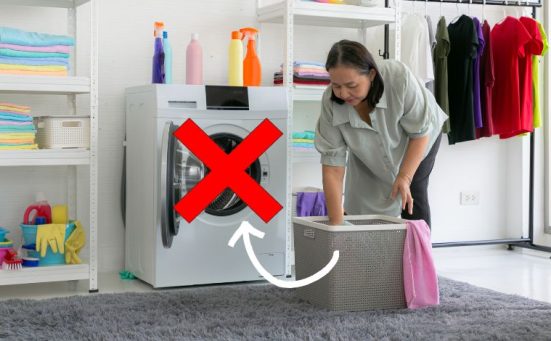
The Difference Between A And B Energy Ratings On Washing Machines (explained)
If you’ve been looking for a new washing machine recently you’ll have noticed the energy rating applied to all appliances. This system of letters running from A to G is designed to inform the consumer at a glance how energy efficient the appliance is.
But is there much difference between an A rated washing machine compared to a B rated machine? That’s what we explain in this article as well as explaining the new rating system compared to the old rating system, and much more.
How Does The Energy Rating System Work?
Energy ratings are applied to various appliances to help us to understand how efficient they are. The original energy rating system started in the 1990s and originally ranged from A to D. As more efficient appliances became available, they added A+ and then A++ and eventually A+++.
This all became very confusing for consumers which is why in 2021 a new energy rating system was introduced which runs as follows;
| Previous Rating | New Rating |
|---|---|
| N/A | A rated |
| A+++ rated | B or C rated |
| A++ rated | D or E rated |
| A+ rated | F or G rated |
| A rated | N/A |
As you can see, what was A+++ under the old rating system has now become B or C under the new system and what was A+ is now F or G. The new system is much easier to understand but what does it all mean?
What Does The Energy Rating System Mean In Real Terms?

As you can see from the chart above, A is the most energy efficient and G is the least. In many ways this is enough information for you to make your choice.
Experts agree that an A rated washing machine could save you £50 a year compared to a G rated machine. However, that’s from one end of the scale to the other, the difference between A and B rated washers can be more of a grey area.
Those same experts estimate a saving of around £10 a year on running costs if you choose an A rated washing machine over a B rated one.
How Are Energy Ratings Worked Out?
There are a number of factors used to decide on the rating for that particular appliance. For example;
- Energy Consumption
The energy consumption is displayed in kilowatt hours (kWh) per 100 washes. - Drum Capacity
The drum capacity is displayed in kilograms and is the maximum capacity per wash cycle. - Water Usage
The water usage is displayed in litres per cycle. - Noise Level
The noise level is displayed in decibels (dB).
However, even this information can cause some confusion because an 8kg washer that consumes 100 kWh of energy is more efficient than a 7kg washer that consumes 90 kWh of energy.
It’s all to do with performance and averages which we could work out for ourselves given enough time and a large enough piece of paper. However, the energy ratings work all of this out for you.
Which means that an A rated washer is better than a B rated one if you look at efficiency as your deciding factor.
Is It Wise To Use The Energy Rating As Our Deciding Factor?

If you dig a little deeper into the energy rating, it soon becomes obvious that it’s not enough to see if you’re really saving any money. You see, an A rated washing machine that costs £650 is around £50 cheaper than a B rated washer. Which means you save £50 on the cost price but the A rated machine is more energy efficient.
However, the A rated machine will only save an average of £10 per year on running costs. Which means it would take you 5 years to level up the purchase cost.
If you look at it in that light, the B rated appliance could be a better choice. In reality, the energy rating is not really enough to sway your decision making at all.
It’s natural to assume that an A rated appliance is better because it has the highest rating. But there are other factors to consider like how long will it take to balance the difference in the purchase price with energy savings?
In our opinion, there are more important factors to consider which is why we would advise you to go for the best washing machine you can afford as long as it is at least a B rated appliance. The gap between A and B rated washing machines isn’t that wide and either will be better for saving money than lower rated, less efficient appliances.
Does The Energy Rating On Washing Machines Matter?
The energy rating on washing machines does matter, but there are greater factors to consider. Of course nobody wants to spend more on energy or damage the environment more than is absolutely necessary.
Having said that, we all have a limited amount of money that we can spend on large items like washing machines. In many cases, there has to be some form of compromise and it’s often the cost that is the deciding factor whether we like it or not.
Added to which the differences between an A rated washer compared to a B rated washer are far less than the differences between an A and G rated appliance. A rated washing machines might cost less to run but you might find it works out better in the long run to buy a B rated appliance.
SEE ALSO: How Does The New Energy Rating System Work For Appliances? [A-G rating system]
Frequently Asked Questions
The main difference between A and B rated washing machines is that an A rated machine is typically more efficient than a B rated machine.
Under the new rating system for washing machines that was introduced in 2021, it’s difficult for any washer to achieve an A rating. This means that B rated washing machines are among the most energy efficient.
Whether it’s worth buying an A rated washing machine is a matter of some debate. The average purchase price of an A rated washer will be around £50 more expensive than a B rated model. However, the difference in energy saving is estimated to be around £10 per year. This means it will take at least 5 years to recoup the extra cost of an A rated machine compared to a B rated model.
Also, follow us on Pinterest ...



